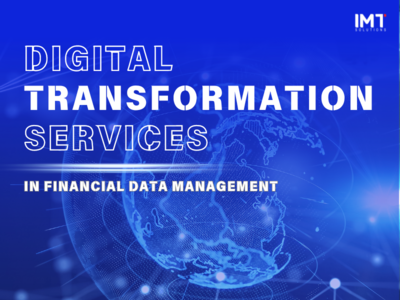Fintech Economy: The Digitized Economy Landscape
The ongoing dematerialization of financial services and money creates opportunities to offer more inclusive and efficient financial services to promote economic development. The convergence between finance and technology has opened new avenues towards a fully digital economic landscape, redefining transaction modes, investment models and financial interactions.

The Fintech Phenomenon: A Fusion Between Finance And Technology
The fintech economy is a vibrant environment driven by innovation in technology and a spirit of entrepreneurship. Online banking, electronic payments, peer-to-peer lending, robo-advisors, blockchain technology, and cryptocurrency are just a few of the many inventions that fall under this broad category. These developments are democratizing access to financial services and revolutionizing how people and businesses handle their finances, especially in underprivileged areas. The term “fintech,” which is a combination of the words “finance” and “technology,” refers to a new class of businesses that have resurrected the financial industry by utilizing cutting-edge technologies to provide creative financial services and products that are as widely available as possible.
Fintech’s Impact On Economic Growth And Financial Inclusion
Fintech is increasing access to financial services for millions of individuals who were previously shut out of the conventional financial system. Economic and geographic obstacles are being lowered by innovations like digital payment solutions and mobile banking, which makes it simpler than ever for the unbanked population to transact, save, and invest. The global economy is experiencing a surge in economic activity and entrepreneurship, as more individuals and businesses gain access to the tools and resources needed to participate in the financial ecosystem.

The role of artificial intelligence (AI) in fintech further amplifies its impact on economic growth and financial inclusion. In the end, AI-powered algorithms are improving accessibility and inclusion in financial services by bringing previously unheard-of levels of efficiency, accuracy, and customization. Fintech companies are able to provide customized financial solutions to a wider spectrum of individuals and enterprises by using machine learning algorithms that scan massive amounts of data to detect fraud, find patterns, and evaluate creditworthiness.
Additionally, by offering low-cost, automated portfolio management services, AI-driven robot-advisors are transforming the investment management industry. These platforms give people who might not have had access to traditional wealth management services the opportunity to invest by using AI algorithms to build diverse investment portfolios depending on each user’s risk tolerance and financial objectives.
The Driving Forces Behind Fintech Innovation
First, fintech innovation has been greatly aided by the growing desire from consumers for more accessible, transparent, and convenient financial products. Nowadays, customers are looking for digital financial services alternatives. This trend is forcing companies to reconsider their products in order to adapt to these shifting demands.
Simultaneously, advanced algorithms driven by artificial intelligence and machine learning underpin automated lending systems. They also support wealth management services and financial market forecasting tools. Similarly, blockchain technology has created unprecedented levels of security and transparency. This opens up new avenues for digital identity management, smart contracts, and cross-border payments.

Navigating The Challenges And Opportunities Ahead
As fintech continues to reshape the digital economy, it is critical to closely consider the opportunities and challenges that arise in this shifting landscape. Difficulties can come in many different forms, such as security threats and regulatory obstacles or competitive pressures and swift shifts in customer preferences. But every obstacle also offers a chance for development and creativity. Indeed, fintech businesses can improve their standing in the market, win over new clients, and grab expansion possibilities by foreseeing these difficulties and taking proactive measures to address them.
Cybersecurity In Fintech Economy
Another technical advancement that has grown quickly over the past two years is decentralized finance. This is a financial network built entirely on crypto assets and operated without the need for a central middleman. Known as DeFi, it offers the potential to provide more creative, inclusive, and transparent financial services due to its improved accessibility and efficiency.
However, it also includes a rise in debt and is particularly susceptible to risks related to the market, liquidity, and cybersecurity. Cyberattacks are dangerous for these platforms as they steal financial assets and undermine user confidence. These attacks can be significant for traditional institutions as well. It appears that all deposits are at risk because decentralized finance platforms do not offer deposit guarantees. Massive customer withdrawals typically occur once cyberattacks against these service providers are made public.

The relationships between these platforms and established financial institutions have grown stronger as institutional investors embrace them more and more. These platforms are contributing to the acceleration of cryptonization in certain nations. In these countries, citizens are using crypto assets instead of native money.
Thriving In The Midst Of Market Rivalry In The Fintech Economy
Fintech stimulates competition and innovation. This improves economies, encourages entrepreneurship, and generates new job opportunities. All of these contribute to the expansion of the global and local economies. In the fintech industry, competitive risks pose a significant challenge to both existing and growing businesses. Due to the industry’s dynamic and quick evolution, competitors can come in many forms. These include agile startups, technology giants, and established financial institutions trying to reinvent themselves.
One of the most noteworthy trends is the arrival of major BigTech platforms in the payments market. Examples include Apple Pay, Google Pay, and Amazon Pay. These platforms directly compete with fintech start-ups. They offer several benefits, such as access to vast amounts of data and ecosystems built around active user bases. They are not bound by the same regulatory restrictions when using traditional financial institutions to make payments.

Fintech companies can design products and marketing plans with a competitive advantage using AI-driven data analytics. This provides them with a deeper understanding of market trends, customer behavior, and risk factors. Through the utilization of artificial intelligence algorithms, businesses can instantly evaluate enormous volumes of data. They can also spot new market opportunities and modify their product offerings in response.
Let Imt Solutions Aid You In This Fintech Economy
In the always changing fintech sector, finding dependable solutions that meet your company’s objectives is critical. At IMT Solutions, we are committed to providing excellent IT and digital transformation services. We understand the nuances of the fintech industry. Our team of professionals possesses the requisite knowledge and proficiency to offer innovative fintech solutions. These solutions address the various obstacles and opportunities presented by the digital economy.
We work together to navigate the complexities of the fintech environment. Our services range from unique software development to strong cybersecurity measures. We ensure your company stays ahead of the curve. Discover how IMT Solutions can support your fintech ambitions. Let us guide your company toward success in today’s ever-changing financial environment.








